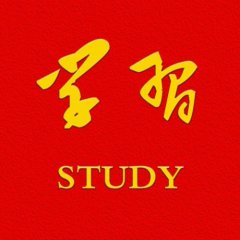Occupation affix particles in Chinese
In most of the world's languages, you can turn a word into its respective occupation by adding affixes to it. However, as Chinese doesn't conjugate, we attach an additional character to a word instead to form that corresponding job. One aspect in which Chinese differs from English when forming occupation words is that in English, what suffix is used depends mainly on the origins of words, but in Chinese people choose occupation particles based on the properties and characteristics of that job. Here're some practically and frequently used occupation particles in Chinese.
1.家
家, with its original meaning of a family or a clan, can be extended to refer to a particular philosophy, theory or ideology. Hence, when it's used to form an occupation word, that occupation would be usually related to a professional skill, interest or talent. For example:
-文学家: a person who has been educated on literature — a litterateur.
-画家: a person who is professional in drawing — a painter.
-科学家: a person who has professional knowledge about science — a scientist.
-音乐家: a person who is well-educated and professional in music — a musician.
-美食家: a person who is passionate and authoritative in appraising foods — a gourmet.
It's good to note that when two different occupation words are derived from the same origin, the one with 家 added often has a higher level of profession, authority or recognisation. For instance, 歌手 and 歌唱家 are both people who take singing as their jobs, but 歌唱家 is definitely regarded as an artist while 歌手 is probably just a public performer or a pop song singer.
Another interesting fact is that when we come to players for specific musical instruments, the only two that are conventionally named with 家 are 钢琴家, a pianist and 小提琴家, a violinist.
2.师
师 originally means a teacher or an adviser. When a job is named with 师 attached, it refers to people who are well-trained or experienced in a particular area. The difference between it and 家 is that a 师 may not necessarily have the profession or talent. Here're some examples:
-教师: a person who is trained to teach others — a teacher.
-厨师: a person who is trained to work in a kitchen — a cook.
-理发师: a person who is trained to manage people's hair — a barber.
-会计师: a person who is trained to account money — an accountant.
3.手
手 means hands, thus referring to people who have high skills or talents, but only in a small area. Unlike 家, a XX手 usually doesn't have an overall profession in a general field, but in a much more specific section. It is very often seen in players of a particular instrument. For example:
-鼓手: a person whose task is to play the drums — a drummer.
-吉他手: a person who plays the guitar — a guitarist.
-小号手: a person who plays the trumpet — a trumpeter.
-舵手: a person who is responsible for managing and controlling the helm — a helmsman.
4.工
工 means originally work or labour. Hence it is usually used to name those jobs that need hard labour or manual processes. For example:
-技工: a person hired to manage technical issues — a technician.
-水管工: a person paid to repair waterpipes — plumber.
-电工: a person paid to check and fix electrical devices — an electrician.
-油漆工: a person who paints buildings — a painter.
5.匠
匠 basically means a craftsman, so it is used for any job related to crafting and designing. Though it also involves laborious processes often, it's different from 工 as the labour is done in order to craft or make a certain object or artefact. For example:
-木匠: a person who uses woods to do handicrafts — a carpenter.
-铁匠: a person who crafts metal objects — a blacksmith.
-
 9
9
-
 1
1


1 Comment
Recommended Comments